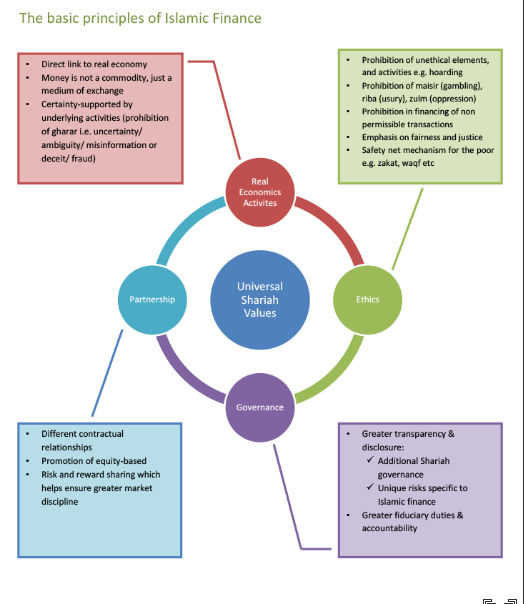About the FASB

For corporations based in the European Union, the International Financial Reporting Standards (IFRS) rules are the equivalent of GAAP.

The body of financial accounting standards and rules published in FASB, APB, and AICPA pronouncements is collectively known as generally accepted accounting principles or GAAP, which we’ll discuss in further detail later. The GAAP guidelines cover all major accounting activities and topics including disclosure, assessing risk or uncertainty, and preparing financial statements. The United States is the only country that uses Generally Accepted Accounting Principles (GAAP). The Board’s first formal plan for international activities described the ultimate goal of internationalization as a body of superior international accounting standards that all countries accepted as GAAP for external financial reports. Since the Board had concluded that the ultimate goal was beyond immediate reach, it established a near-term strategic goal of making financial statements more useful by increasing the international comparability of accounting standards while improving their quality. In October 1996, the National Securities Markets Improvement Act of 1996 became law.
Professional Resources
As noted elsewhere in this release, the Commission and its staff do not prohibit the FASB from addressing a particular topic and do not dictate the direction or outcome of specific FASB projects provided that the conclusions reached by the FASB are in the interest of investor protection. As mentioned earlier, investors are one of the most impacted by the efforts of the FASB. GAAP allows stakeholders and investors to interpret a company’s financial position and condition through the financial statements, which allow comparisons with other companies and help make informed investment decisions. In order to establish universal accounting standards, the Financial Accounting Standards Board coordinates with the International Accounting Standards Board (IASB), which is responsible for the International Financial Reporting Standards (IFRS). The IASB was established as an independent standard-setting Board that is appointed and overseen by a group of Trustees of the IASC Foundation.
SMB CFO Sentiment, Tracking Bad Debt, Apple Product Reveal – CFO.com
SMB CFO Sentiment, Tracking Bad Debt, Apple Product Reveal.
Posted: Mon, 05 Jun 2023 07:00:00 GMT [source]
Following the 2008 financial crisis, Congress leaned on FASB to change a mark-to-market accounting rule that forced banks to write down billions of dollars in assets. FASB eventually relaxed the rule after Congress threatened to introduce legislation on the matter. 12 The Commission staff will continue to take such action on a in 1973 fasb was replaced with day-to-day basis as may be appropriate to resolve specific accounting and reporting issues under the particular factual circumstances involved in filings and reports of individual registrants. On July 1, 2009 the FASB launched the FASB Accounting Standards Codification as the single source of authoritative nongovernmental U.S.
The Accounting Principles Board
In the 21st century, the FASB is looking into how technology interacts with the field of accounting so it can utilize some of the benefits it may bring to the world of accounting. In September 2008,the FASB and the IASB issued an update to the 2006 MoU to report the progress they have made since 2006 and to establish their convergence goals through 2011 (Update to 2006 Memorandum of Understanding). The IASC and the International Organization of Securities Commissions (IOSCO, of which the SEC is a member) agreed on what constitutes a comprehensive set of core standards. The IOSCO agreed that if it found those core standards acceptable, it would recommend endorsement of IASC standards for cross-border capital and listing purposes in all capital markets.
- They are officially recognised as authoritative by the Securities and Exchange Commission (Financial Reporting Release No. 1, Section 101) and the American Institute of Certified Public Accountants (Rule 203, Rules of Professional Conduct, as amended May 1973 and May 1979).
- Many of those were countries that lacked their own standard-setting infrastructure.
- The Board also makes portions of those reports available to the public, subject to restrictions in the Act that prohibit, or require a delay in, the public disclosure of certain information.
- The IASB’s structure and operations resulted from the efforts of a strategy working party formed in 1998.
- The International Accounting Standards Board is the standard-setting body for International Financial Reporting Standards (IFRS).
- The EITF is comprised of approximately 13 members who serve, generally without compensation, on a part-time basis.
Upon ratification of an EITF consensus by the FASB, the consensus is published as part of the EITF’s minutes and may be relied on by Commission registrants and others in the preparation of financial statements that purport to conform to generally accepted accounting principles. Section 104 of the Sarbanes-Oxley Act of 2002 requires the Board to conduct a continuing program of inspections of registered public accounting firms. In those inspections, the Board assesses compliance with the Act, the rules of the Board, the rules of the Securities and Exchange Commission, and professional standards, in connection with the firm’s performance of audits, issuance of audit reports, and related matters involving issuers. The Act requires the Board to conduct those inspections annually for firms that provide audit reports for more than 100 issuers and at least triennially for firms that provide audit reports for fewer issuers. Under the Act and the Board’s rules, the Board provides a copy of each report, in appropriate detail, to the Commission and to certain state regulatory authorities. The Board also makes portions of those reports available to the public, subject to restrictions in the Act that prohibit, or require a delay in, the public disclosure of certain information.
IOSCO calls on IASB and FASB to collaborate on goodwill accounting
The SEC had endorsed the Wheat Study Group recommendations, and in December 1973 gave the FASB its imprimatur in Accounting Series Release (ASR) No. 150. The SEC stated that, based on the evidence of private sector support for the FASB, it would continue to look to the private sector to establish and improve accounting principles. The FASB plays a pivotal part in the functioning of several regulatory bodies in the U.S., as accounting standards are important for an efficient market.
Meet the accountants who may become the new power brokers of … – The New York Times
Meet the accountants who may become the new power brokers of ….
Posted: Thu, 04 Aug 2022 07:00:00 GMT [source]
However, it appears that the APB could not keep pace with the growing complexity of transactional activity that required financial reporting. 5 Letter dated August 16, 2002 to SEC Chairman Harvey L. Pitt from Robert H. Herz, Chairman, FASB and Manuel H. Johnson, Chairman and President, FAF. The Act does not restrict the Commission’s ability to develop accounting principles on its own, and does not limit the number of private-sector bodies the Commission may recognize. While FASB proposals were often controversial, the FAF itself occasionally was embroiled in controversy.
Who replaced the APB?
It was replaced in 1973 by the Financial Accounting Standards Board (FASB).
Recent Comments